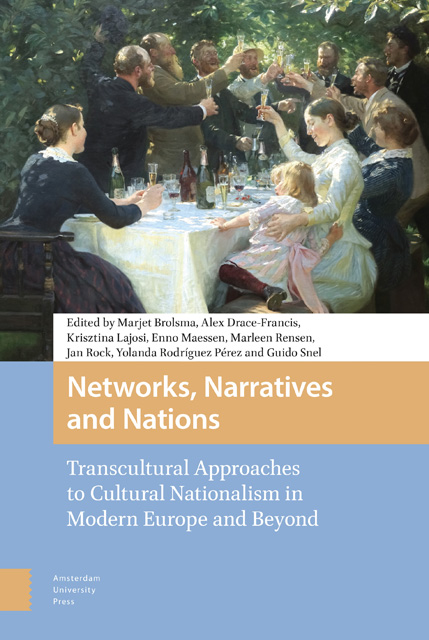 Networks, Narratives and Nations
Networks, Narratives and Nations Book contents
4 - Cultural Nationalism beyond Europe: Genealogies of Mankind, Imperial Custodianships and Anticolonial Resistance
Published online by Cambridge University Press: 16 November 2022
Summary
Abstract
This chapter examines how cultural nationalism became a global phenomenon. It argues this occurred though the interplay of three processes in tension with each other, a drive by European historicist intellectuals to uncover the most distant origins of peoples and their affiliations, a global expansion of empires which claimed to be custodians of world civilizations, and countervailing movements of anticolonial resistance. I briefly illustrate this through the cases of Egyptian and Afghan nationalism.
Keywords: imperialism; anticolonial nationalism; Afghanistan; Egypt; linguistics; archaeology
Joep Leerssen has been seminal in developing a transnational approach to the rise of cultural nationalism in Europe. Recently, he has proposed extending his study to non-European cultural nationalism. In this spirit, this essay addresses the question: how do we explain cultural nationalism as a near global phenomenon?
In this necessarily schematic contribution, I shall propose that this modern European formation became global through the interplay of three apparently opposed processes. The first was a transnational movement of western European historicist thinkers and scholars (revivalists), who as part of a general programme of regeneration sought to uncover the most distant origins of peoples and their affiliations. The second was the huge global expansion of the European empires that competed to present themselves as protectors of the world's cultural patrimony, even as they threatened to pulverize all other living cultures. The third was a countervailing movement of resistance by anticolonial intellectuals who, though subject to “Westernization” used the investigations of European scholars to combat imperial notions of native decadence and to chart new directions for their “emerging nations.” These anticolonial nationalisms in turn have inspired a fourth process (which for reasons of space I cannot pursue here) reacting back on Europe, whereby minority nationalisms in western Europe have revolted against their nation-states, proclaiming themselves to be “internal colonies.”
I will focus on some novel syncretizations deriving from this interplay, notably in Egypt and Afghanistan. Particular attention will be paid to the agency of interstitial agents (ethnic or religious minorities, religious reformists and diaspora figures), the impact of linguistic and archaeological findings, and the battles over the ownership of both the professions of knowledge and their discoveries.
- Type
- Chapter
- Information
- Networks, Narratives and NationsTranscultural Approaches to Cultural Nationalism in Modern Europe and Beyond, pp. 63 - 72Publisher: Amsterdam University PressPrint publication year: 2022
